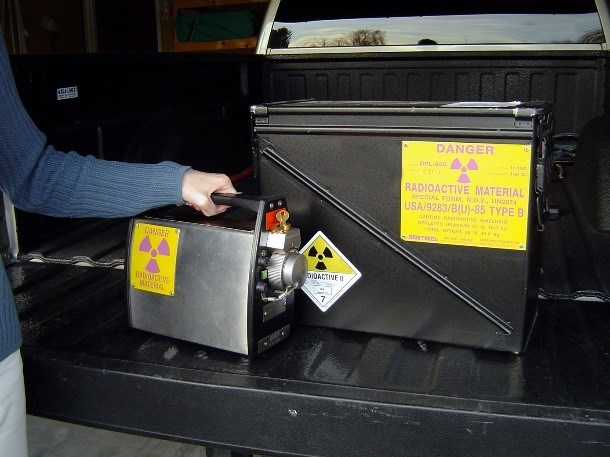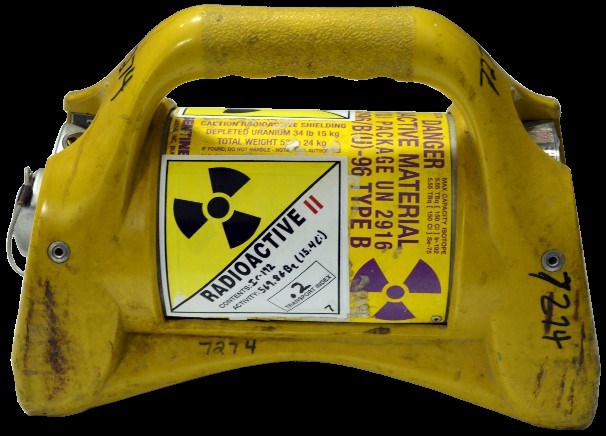With radioactive materials increasingly being used for industrial purposes and life-saving medical procedures, people may wonder just how frequently radioactive material is transported on Canadian highways.
This question is all the more relevant when considering that the Nuclear Waste Management Organization (NWMO) is in the site selection process for a deep geological repository for Canada’s used nuclear fuel. What impact would shipments of used nuclear fuel have on the total amount of radioactive materials being shipped already?
Are there radioactive shipments on our highways today?
Shipments of radioactive materials are made routinely throughout Canada every day.
During 2021 and 2022, about 760,000 shipments were made annually, with over 93 per cent of these shipments made by road.
About four per cent of all radioactive shipments in Canada – approximately 34,000 per year – are made in Type B packages, which are designed and certified to survive severe accidents. The packages used for moving Canada's used nuclear fuel are designed to this same standard.

But don’t those shipments just contain low-level radioactive materials?
In some cases, the materials currently being transported are equally or more radioactive than the used nuclear fuel that the NWMO will eventually transport to a deep geological repository.
Moving all of Canada’s used nuclear fuel to a deep geological repository – whether the site is in the northwest or in southern Ontario – would only cause a tiny increase in the total number of radioactive materials shipments, and only a two per cent increase in Type B package shipments.
Not beginning until the mid-2040s after a repository is constructed and licensed, the NWMO's transport program would add only about 650 shipments to the approximate 34,000 Type B shipments made annually.
What are Type B packages?
Type B packages must be used to transport radioactive material that emit higher levels of radiation. Type B package designs must be certified by the Canadian Nuclear Safety Commission (CNSC) to demonstrate the ability to withstand severe accident conditions. This safety requirement is unique to the radioactive materials transport industry. Examples of Type B packages currently being used include packages designed to transport cobalt sources for medical radiotherapy, industrial gauges, and exposure devices.
The potential hazards posed by the materials transported in Type B packages are controlled by the strength of the package designs, which are certified to pass stringent impact, and puncture tests, an engulfing fire test, and immersion in water. Type B packages can vary in weight from about 25 kg for a small package to 35 tonnes or more for a large one, depending on the volume and radioactive activity of the material it is designed to contain. The shape of the package can also vary.

What could happen if there was an accident?
Even though the materials transported in Type B packages are potentially hazardous, you probably haven’t heard about the 34,000 shipments that are made in Canada each year. This is because these shipments are carried out safely, and therefore they seldom make the news. Even if there was an accident, both testing and real-world accident scenarios have shown that Type B packages can withstand even severe accident conditions.
The NWMO’s used nuclear fuel shipments will not start until the 2040s when the repository has been constructed and is ready for storage operations to begin. In the event of an accident, the strong Type B packages used for transport ensure that the used fuel would be safely contained. Regardless, as used nuclear fuel is a solid material, it can’t leak into the environment like water or gas might. The NWMO is confident that the safe and proven track record of Type B packages will continue once transport of Canada’s used nuclear fuel to a deep geological repository begins.
We encourage everyone to learn more about the rigorous safety measures in place by visiting the CNSC website at www.cnsc-ccsn.gc.ca or by reaching out to the NWMO at [email protected].



